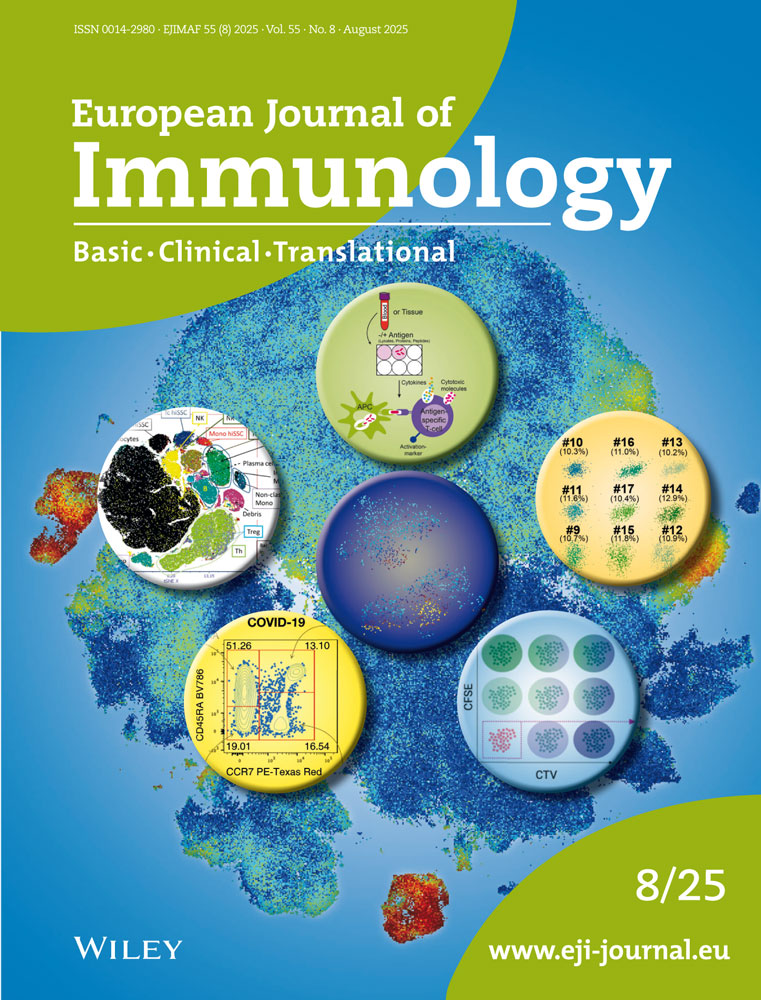Induction of experimental autoimmune encephalomyelitis by native myelin basic protein-activated T lymphocyte lines
Abstract
Self antigens bind to MHC class II molecules in vivo. The capacity of class II molecules to bind native self antigen, namely antigen that has not been processed through an endososomal pathway, could increase susceptibility to autoimmune diseases if recognized by autoreactive T lymphocytes. To confirm this prediction we designed experiments to show that: (a) native myelin basic protein (BP) activates encephalitogenic T lymphocyte lines, and (b) these activated lines cause experimental autoimmune encephalomyelitis (EAE) in naive rats. We show that two encephalitogenic T lymphocytes lines, LEW and BN, are activated by native BP in the presence of paraformaldehyde pre-fixed antigen-presenting cells (APC). The degree of activation, as measured by T lymphocyte proliferation, was equal to that obtained in response to BP processed by APC prior to paraformaldehyde fixing. The response to native BP was confirmed by demonstrating insensitivity to the presence of the lysosomotropic agent chloroquine or protease inhibitors. Activation of T lymphocytes by BP required the presence of syngeneic APC. The activated T lymphocyte lines were injected into naive recipient rats that developed EAE within 5 days. Both disease incidence and severity were equal to that observed in rats that were treated with T lymphocytes activated by processed BP. Hence, at least in EAE, the risk of an autoimmune event could be precipitated by a complex of native antigen and class II molecules on cells that do not possess an endososomal pathway for antigen processing and presentation.




